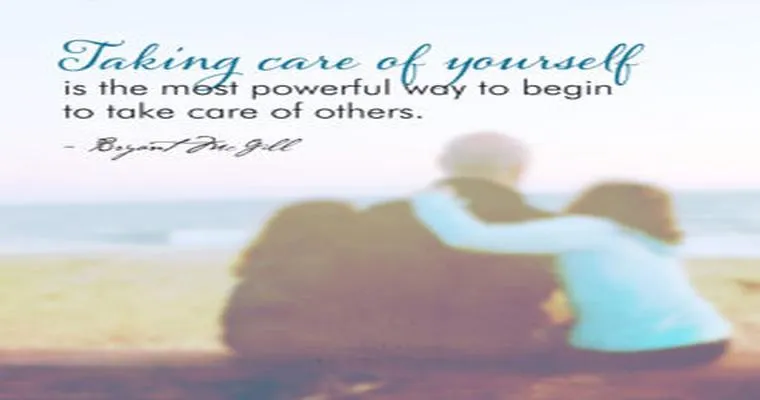Caring for loved ones can be both a rewarding and challenging experience. It often requires a significant "emotional investment", physical stamina, and mental resilience. However, as caregivers, it is crucial to prioritize your own "well-being". Neglecting self-care can lead to "burnout", increased stress, and decreased ability to provide the best support for those you care for. So, what do you do to take care of yourself while caring for your loved ones? Here are some essential strategies that can help maintain your health and happiness.
First and foremost, set aside dedicated time for yourself. This can be as simple as scheduling a few minutes each day for a quiet activity that you enjoy, such as reading, meditating, or going for a walk. It is essential to recognize that taking a break is not selfish; it is a necessity. By allowing yourself moments of relaxation, you recharge your energy and improve your "mental clarity", ultimately benefiting both you and your loved ones.
Another vital aspect of self-care is maintaining a healthy lifestyle. This includes eating nutritious meals, staying hydrated, and engaging in regular physical activity. A balanced diet rich in fruits, vegetables, and whole grains can enhance your "physical health" and elevate your mood. Regular exercise, even in short bursts, can help alleviate feelings of stress and anxiety. Aim for a routine that incorporates activities you enjoy, whether it’s dancing, yoga, or simply taking a brisk walk in your neighborhood.
Connecting with others who understand your situation can also provide emotional support. Consider joining a caregiver support group or seeking out friends and family who can relate to your experiences. Sharing your challenges and triumphs can foster a sense of community and lessen feelings of isolation. Remember, it is perfectly acceptable to ask for help when you need it. Delegating tasks or seeking assistance from others can alleviate some of the burdens of caregiving, enabling you to focus on your own needs as well.
Incorporating mindfulness practices into your daily routine can be another effective self-care strategy. Mindfulness can help you stay present and reduce feelings of overwhelm. Simple techniques such as deep breathing, meditation, or even journaling can provide clarity and calmness. These practices allow you to process your emotions and maintain a balanced perspective, making it easier to handle the demands of caretaking.
Lastly, do not forget to indulge in activities that bring you joy. Whether it’s pursuing a hobby, watching your favorite show, or taking a class, engaging in activities that make you happy is crucial for your "emotional well-being". Finding time for personal interests can serve as a reminder of your identity outside of caregiving, ultimately enhancing your overall satisfaction with life.
In conclusion, taking care of yourself while caring for your loved ones is not just beneficial but necessary. By prioritizing your own health and happiness through dedicated time for yourself, maintaining a healthy lifestyle, seeking support, practicing mindfulness, and indulging in personal interests, you can create a sustainable balance in your life. Remember, a happy and healthy caregiver is key to providing the best care for your loved ones.





